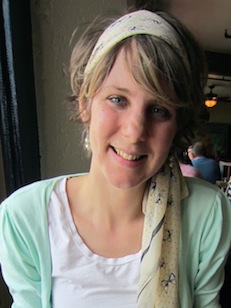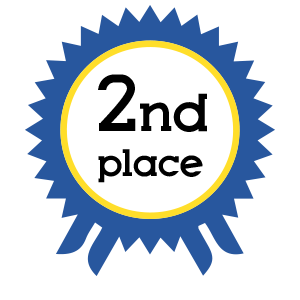
Living Bigger, Looking Closer
By Charlene KwiatkowskiI went to the city not because I wished to live deliberately and front only the essential facts of life, but because I wished to live, period. To say I was dying might sound melodramatic, but I am an English major. We can be prone to embellishment and altering Thoreau quotes. I came to Vancouver why any literary character comes to the city—to escape and to recreate.
I wasn’t escaping anything evil or life threatening. No bad ex, toxic home, or run- in with the law. I was fleeing the fences of my suburban origins that kept me in complacency, boredom, and unhappiness. You could say I am an environmental determinist.
I came to the city because bigger is better, and bigger is what I wanted. More buildings, more art, more culture, more people, more noise, more streets, more excitement, more possibilities.
I had heard the stories—“most beautiful place on earth,” “greenest city by 2020,” “not very friendly,” “lots of singles”—but like any tale from a foreign land, none of it feels true unless you go there yourself. It was my Promised Land, my Mecca, my X on a pirate’s map.
City of my dreams? You could say so. I wrote poems and stories about Vancouver before I arrived. I grew up only 45 minutes away, but it always seemed just out of reach, like the missing Oscar of Leonardo DiCaprio’s career.
I moved here at 26 in the throes of my quarter-life crisis. Vancouver is a perfect place when you’re young and uncertain and constantly looking at yourself in the mirror, wondering who you are and where you’re going. You can’t get away from your reflection in the glass condos growing like weeds along False Creek, Coal Harbour, or Yaletown. It’s a perfect city for narcissists.
Urban planners love to say the city has potential. It’s barely over 125 years old—a teenager of a city, really. But saying something has potential over and over again doesn’t make it so. Maybe I like living in Vancouver because the city promises perpetual possibility. It reflects how I want to see and be seen.
When Vancouver’s bathed in light, surrounded like a middle child between the salty play of the ocean and the stern face of the North Shore mountains, she shines like a goddess. People call this place a paradise. Bright, young, green, she sits at the edge of time and space. She makes it easy to hope. But when I walk down Hastings or even West Georgia Street, her light fades as she sits at the edge of the sidewalk. Wrinkled hands and scratchy voices call out to me from cardboard signs, and I look for a window to look in at myself. We see what we want to see.
Living bigger means looking closer to spot the small encounters that make a city human. Against the backdrop of blinking lights, glass monoliths, and perennial construction zones, there’s a glance between strangers riding opposite escalators; a teenager with greasy hair who offers his seat to the pregnant woman on the 99; the wave of a toddler who cracks the poker face of a businessman walking to the Scotia Tower.
I watch the city’s subtlety from behind the pages of a book. When it’s sunny, I set up in David Lam or Charleson Park. The more I see people, the more I think Douglas Coupland was right when he makes at least one character in his novels lonely. People stroll across the grass in twos or threes, but sometimes I wonder, “Are they together or are they alone together?”
I started stopping people when I moved here. Stopped them to say hi and can you show me the way to the nearest grocery store? I asked if they liked living here and invited my neighbour for brownies to prove that Vancouver wasn’t snobby. I wanted it to be everything I dreamed of because it was so important for my dreams to match reality.
And people were stopping me too. It was like one chain of feet hopping over fences. My favourite encounter was with a Greek man who could have been my grandfather. He had a thick accent and an unevenly buttoned shirt. He saw me with The Brothers Karamazov on a bench one afternoon and asked, “How’s the book?” I could have said “good” and he’d have probably kept on his way, but I felt truthful that Sunday. The book made me feel the exhilaration and exhaustion of the human condition. “I don’t know,” I told him.
We talked for hours. I think his name was George. I’ve always hoped to meet people this way. Better than a dog, better than a glass of wine. Sit with a book and people who want a conversation will come to you.
I haven’t had one of these encounters in a while, which makes me a little sad. Maybe I’ve been reading less and working more. Sitting in my car instead of sitting on benches and buses or colliding with strangers’ elbows on the SkyTrain. Not a lot of Georges lately. I wonder what he’s up to now—if he wrote the story of his life he said he was going to write, if he felt it was time yet. When does anything ever feel like the right time?
After his two-year experiment in self-sufficiency, Thoreau left the woods because he had a different life waiting to be lived. Even he, a self-confessed hermit, came back to the city. The Walden years were over. I think there’s great wisdom in knowing when to go and when to stay.
You look for signs when you move somewhere to affirm you made the right choice. That first week in Marpole, I walked by “Charlene Apartments.” I stopped and looked again, making sure I was seeing clearly. Yes. My own name was in my neighbourhood, marking my place here, saying I belong. That’s good enough for now.

